





Every revops and sales leader right now is asking, “How can I use AI in sales?”. And for good reason: AI is helping sales teams everywhere hit their quotas faster. In fact, 97% of sales leaders agree that AI has made their teams more productive.
Businesses that use AI are simply more profitable than those who don’t. Six to ten percent more profitable, to be exact. So if you’re asking yourself how to use AI in sales, you are on the right track! This complete, step-by-step guide will show you exactly how to integrate and use Artificial Intelligence in sales.
AI is more efficient at handling filtering and scheduling job tasks such as manual prospecting, sales lead qualification, and even initial outreach than a human working without customer data. In fact, research by Mckinsey indicates that as much as one-third of sales tasks can be automated.
But even though AI can perform many of these repetitive tasks, it cannot replace the human touch that is needed to get deals across the finish line. The role of the modern sales person is simply evolving. Here are some key ways that AI in sales is changing the way we work:
AI automates lead generation and lead scoring. Instead of building sales prospect lists and making cold calls, salespeople now spend more time engaging with high-potential prospects.
AI can analyze more data and do it faster than any human could. That means more accurate buyer personas, more accurate lead scores, and better personalization. Sales teams now have access to more and better data they can use to sell better.
AI can perform repetitive tasks like automating follow-up emails and updating CRM systems such as HubSpot or Salesforce. That means salespeople can spend more time working leads and building stronger relationships.
AI-powered tools help salespeople anticipate customer needs ahead of time. They can proactively suggest solutions and point out opportunities to upsell or cross-sell. This helps sales teams be more effective with timing their outreach.
With AI handling much of the backend administrative work, salespeople can take on more of an advisory role. That means focusing the conversation around solutions and long-term goals, rather than just product features.
Although AI can perform most administrative tasks faster than a typical human, it cannot replace the emotional IQ needed to get deals across the finish line. The role of sales is simply evolving to be more white glove.
Wondering how to break into AI sales? Generative AI supports sales by enhancing personalization, automating tasks, and improving customer interactions. Here are the key types of generative AI use cases in sales:
An AI agent for sales is an autonomous or semi-autonomous system that analyzes data, makes predictions, and provides recommendations in real time.
For example, an AI agent can analyze sales calls to provide feedback or suggest pricing strategies based on competitor analysis.
Examples of AI agents in B2B sales include:
Bardeen is the AI copilot for GTM teams. Automate any repetitive task and use AI to speed up your most time consuming tasks.
Conversational AI uses a combination of NLP, ML, and automation to provide human-like interactions via chat, email, voice, or messaging apps.
These systems are able to engage with potential customers, perform routine tasks, and answer frequently asked questions.
Examples for AI sales automation include:
NLP is a branch of artificial intelligence (AI) that enables machines to understand, interpret, and generate human language.
NLP helps automate, enhance, and personalize interactions between sales teams and potential buyers by making it easier to write emails, review customer feedback, and interpret data.
Examples of natural language processing in B2B sales include:
ML refers to the use of AI-driven algorithms that analyze data, recognize patterns, and make predictions to optimize the sales process.
ML enables sales teams to automate decision-making, improve lead qualification with software, forecast revenue, and personalize outreach based on past customer behaviors.
Examples of machine learning in B2B sales include:
Predictive AI in B2B sales refers to using machine learning (ML), artificial intelligence (AI), and big data analytics to analyze historical sales data, customer behavior, and market trends to predict future outcomes.
It helps sales teams make data-driven decisions, prioritize leads, and optimize sales strategies. Examples of predictive AI in B2B sales include:
Together, these technologies empower sales professionals to work smarter, close deals faster, and deliver a more personalized customer experience.
There’s a good reason why every SaaS product under the sun has added an AI-powered feature to their spec sheet. Research from G2 reveals that 78% of sales professionals feel that AI allows them to focus on the most critical aspects of their job, and 74% find that using AI sales automation enhances their job satisfaction.
But there are so many AI sales tools on the market that cater to different aspects of the sales process, from AI lead generation to post-sale follow up email automation.
But how do you know where to start and what tools to try? Check out our recommendations below:
Bardeen empowers every member of the GTM team with AI agents and an AI copilot that helps automate repetitive tasks. It is best used for sales process automation such as prospecting, lead or demand generation, lead enrichment, qualification, scoring, and email or calling outreach activities.
Intercom is a conversational messaging platform that uses AI to automate customer interactions. Sales teams can use it to build automated chatbots, send personalized follow-ups, and trigger in-app messaging.
Jasper is a generative AI tool that makes it easy to create content at scale. It uses natural language processing (NLP) and machine learning (ML) to generate sales emails, LinkedIn messages, blog posts, ad copy, and other sales enablement content.
6sense is a sales and marketing platform that uses ML to identify which accounts will most likely convert. It helps sales teams be more efficient with their time and build more accurate sales pipeline forecasts.
Clari is a sales analytics platform that uses predictive AI to build forecasts and improve pipeline visibility. Sales teams can use it to monitor deal health, identify churn risks, and find upsell/cross-sell opportunities.
Each of these top AI sales tools improved a different facet of the sales process. To get started with using AI in sales, find out where your biggest problem areas are, such as drafting emails or qualifying leads, and choose a tool that solves that problem. Start small and build!
AI-powered sales prospecting tools analyze vast amounts of data to identify the most promising leads, automate lead research and qualification, and prioritize leads for improved conversion rates. For example, a B2B SaaS company can use AI to score leads based on factors like demographics, online behavior, and past interactions.
Tools like Sales Navigator and ZoomInfo provide AI-enriched data, freeing up sales reps to focus on relationship building. Implementing AI for prospecting can result in a significant return on investment through more efficient use of sales resources.
AI algorithms can quickly sift through massive datasets to pinpoint the leads most likely to convert based on key indicators like industry, company size, job title, and online activity.
Consider a CRM software provider targeting mid-market companies. AI lead generation tools can analyze a prospect's website visits, content downloads, and social media engagement to determine their level of interest and fit. AI and automation tools help sales reps confidently prioritize outreach to the highest-potential accounts, rather than wasting time on unqualified leads.
Want to save more time while increasing your sales productivity? Use Bardeen's AI sales agent to automate repetitive tasks and focus on closing deals.
Manually researching and qualifying each lead is a time-consuming process that keeps sales reps from revenue-generating activities. AI-powered tools like LinkedIn Sales Navigator and ZoomInfo can automatically gather and enrich lead data, providing a comprehensive view of each prospect.
For instance, an AI assistant can automate lead enrichment by scraping LinkedIn for profile or company data, their website, and news mentions to uncover key details like recent job changes, company growth, and relevant pain points. Armed with this sales intelligence, sales reps can craft highly personalized outreach and tailor their pitch to each prospect's unique needs.
With Bardeen, you can automate as many parts of this process as you’d like to. Here are some ready-to-use, fully customizable automation templates to get you started with using AI in sales:


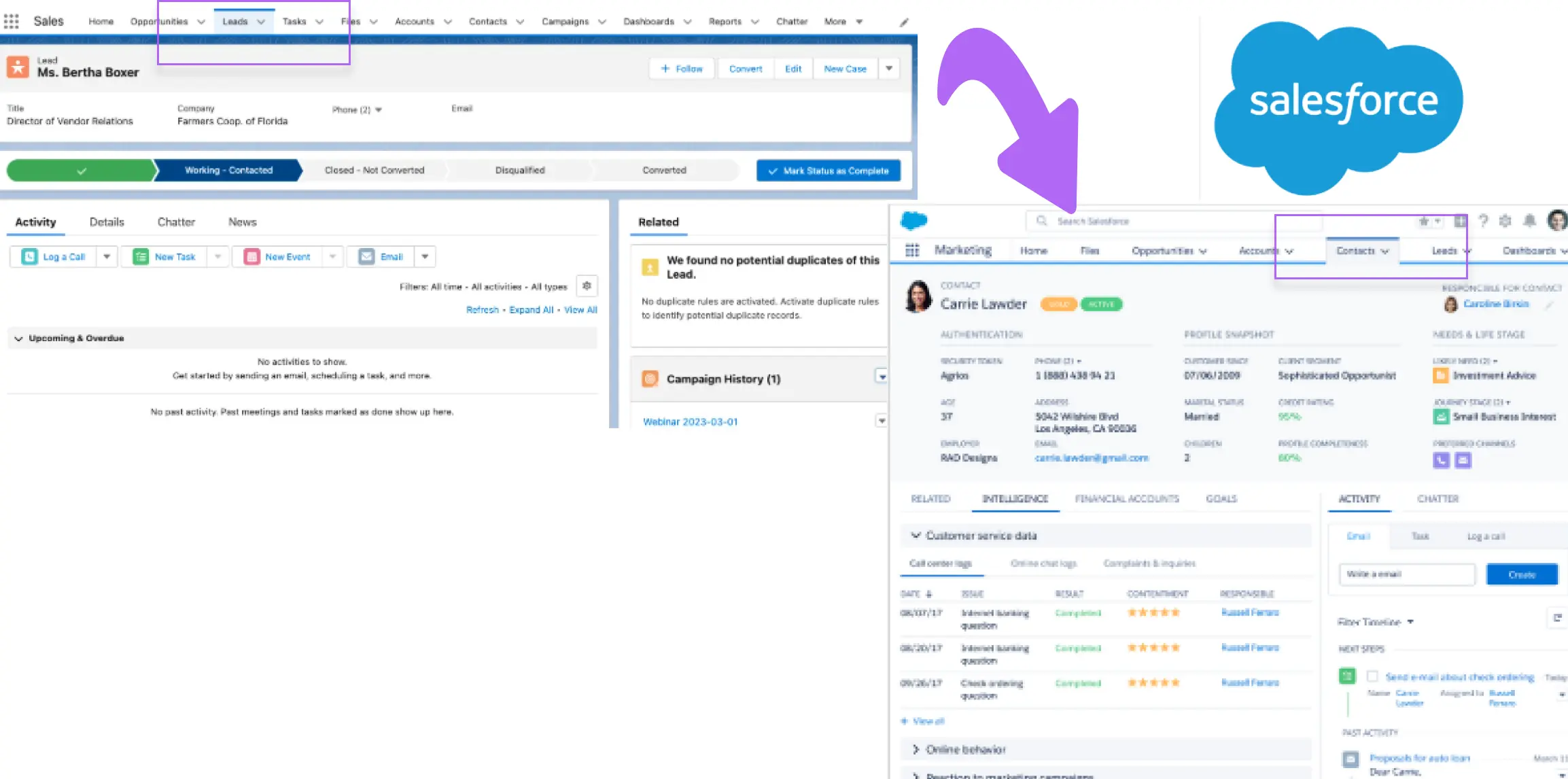
How does this playbook work?
Qualifying Salesforce leads is time-consuming. This playbook uses Apollo to get lead data, assesses qualification based on your criteria, and creates Salesforce contacts for qualified leads automatically.

How does this playbook work?
Qualifying leads is time-consuming and error-prone. This playbook pulls leads from a Google Sheet, enriches them with data from Apollo and LinkedIn, qualifies them using a custom classifier, and saves the results to a new sheet – automating the entire process.

How does this playbook work?
Qualifying companies is time-consuming. This playbook enriches a company from its domain, scrapes LinkedIn data, and saves qualified companies to HubSpot based on your criteria.
Not all leads are created equal, and AI can help sales teams focus their efforts on the opportunities most likely to close. By analyzing historical sales data and real-time engagement signals, AI models can predict a lead's likelihood to buy and recommend the next best action for each account.
For example, if a prospect has viewed multiple product pages and attended a webinar, AI may flag them as high-priority and suggest a personalized demo. According to a McKinsey study, companies that use AI for sales lead prioritization see up to a 10% increase in revenue and a 40-60% reduction in costs.
AI-powered prospecting tools enable sales teams to work smarter, not harder, by identifying the right leads and engaging them with relevant, timely outreach.
AI-driven sales forecasting empowers companies to make data-driven decisions by analyzing historical sales data, market trends, and customer behavior. Tools like Clari and People.ai process vast datasets to generate highly accurate revenue predictions, giving sales teams a competitive edge over traditional forecasting methods. With the ability to identify hidden patterns and adapt to changing market conditions, AI forecasting is crucial for effective sales planning, resource allocation, and goal setting. Companies leveraging AI for sales forecasting can experience significant revenue growth and improved forecast accuracy.
AI algorithms excel at analyzing historical sales data, market trends, and customer behavior to generate precise revenue forecasts. For example, a software company might use an AI forecasting tool to examine past sales cycles, deal sizes, and win rates to predict future performance.
By identifying patterns and correlations in the data, the AI model can provide a reliable forecast that helps the company make informed decisions about hiring, budgeting, and product development. This predictive power enables sales leaders to proactively address potential challenges and capitalize on emerging opportunities.
AI forecasting offers several advantages over traditional methods, such as the ability to process large datasets, identify hidden patterns, and adapt to changing market conditions. While conventional forecasting relies on manual analysis and gut instinct, AI tools like Clari and People.ai can quickly sift through vast amounts of data to uncover insights that humans might miss.
For instance, an AI model might detect a subtle shift in customer preferences or an emerging competitor that could impact future sales. By continuously learning and adapting, AI forecasting provides a more accurate and agile approach to predicting revenue.
Accurate sales forecasting is essential for effective planning, resource allocation, and goal setting. With AI-powered insights, sales leaders can make data-driven decisions that optimize performance and drive growth.
For example, if an AI tool predicts a 20% increase in revenue for the upcoming quarter, the company can confidently invest in additional headcount, marketing campaigns, or product enhancements. Conversely, if the forecast indicates a potential downturn, the company can proactively adjust its strategy to mitigate risk.
According to Gartner, organizations that use AI for sales forecasting can increase revenue by up to 7% and reduce forecast errors by 50%.
AI-driven sales forecasting provides a powerful tool for predicting revenue with precision. By leveraging AI to analyze data, outperform traditional methods, and drive smart decision-making, companies can gain a significant competitive advantage. Next up, discover how AI-assisted sales conversations can help you engage prospects with personalized insights.
AI-assisted sales conversations revolutionize the way sales reps engage with prospects. By providing real-time insights and recommendations during calls, AI helps reps tailor their approach to each prospect's needs and interests.
For example, an AI tool might suggest mentioning a specific case study or highlighting a particular product feature based on the prospect's industry and pain points. Additionally, AI can analyze customer data from multiple sources, such as CRM, social media, and website interactions, to build comprehensive prospect profiles. This enables reps to deliver highly personalized and relevant messaging that resonates with each individual buyer.
AI-powered tools like Gong and Chorus can provide real-time insights and recommendations during sales calls, helping reps adapt their approach on the fly. For instance, let's say a rep is speaking with a prospect in the healthcare industry. As the conversation progresses, the AI tool might suggest mentioning a recent case study featuring a similar healthcare organization that achieved significant cost savings using the rep's product.
By providing this timely insight, the AI helps the rep steer the conversation in a more relevant and persuasive direction, increasing the likelihood of a successful outcome.
Save time and increase conversion rates with Bardeen by automating sales prospecting. Focus on the most qualified leads and improve your outreach.
To deliver truly personalized selling experiences, reps need a deep understanding of each prospect's unique needs, challenges, and preferences. AI can help by analyzing vast amounts of customer data from various sources, such as CRM records, social media activity, and website interactions.
By combining these data points, AI tools like Gong and Chorus can create detailed prospect profiles that provide reps with valuable context for their conversations. For example, an AI-generated profile might reveal that a particular prospect has recently engaged with content related to a specific pain point, enabling the rep to tailor their messaging accordingly.
With Bardeen, you can automate any part of the process. Here are some sample automations you can start using right away, or fully customize to your needs:

How does this playbook work?
Outdated CRM data leads to missed opportunities. This playbook pulls a HubSpot contact, enriches it with up-to-date data, and updates the contact's record with fresh information automatically.



How does this playbook work?
Enriching contact data and updating your CRM is time-consuming. This playbook pulls contacts from Google Sheets, finds missing info like email addresses, and creates or updates the records in HubSpot automatically.



How does this playbook work?
Keeping Salesforce up-to-date is time-consuming. This playbook pulls contacts from Google Sheets, enriches them with additional data, and automatically creates or updates Salesforce contacts, saving hours of manual work.



How does this playbook work?
Enriching contact data in Google Sheets is time-consuming. This playbook uses Apollo.io to find additional information for contacts based on their name and company, then updates the Google Sheet with the enriched data automatically.


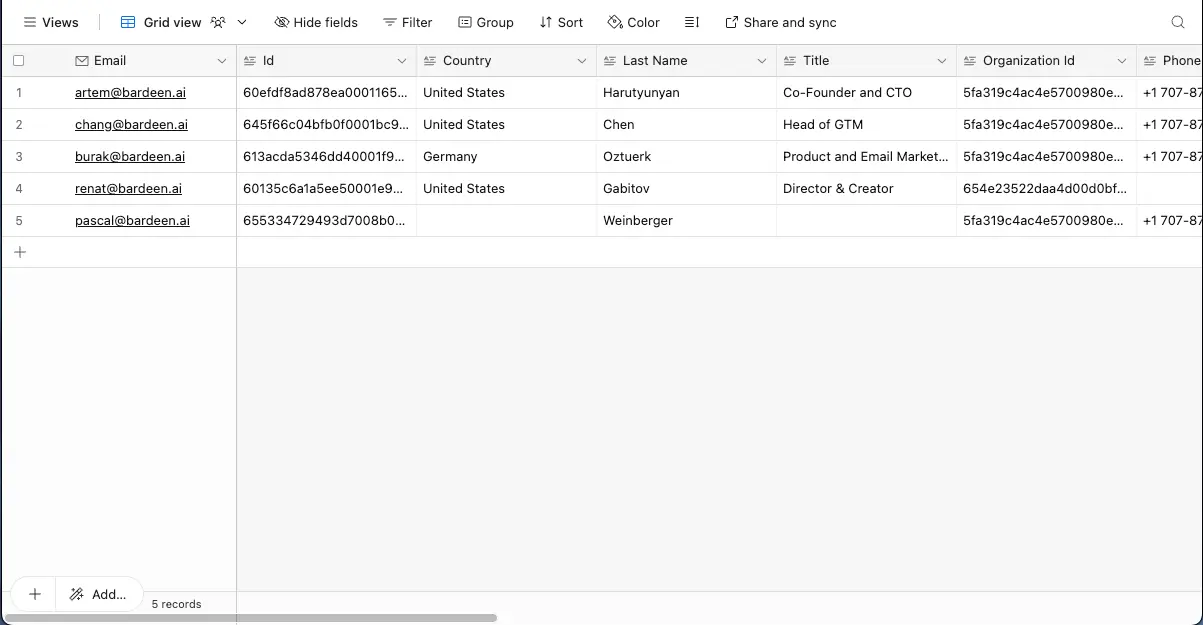
How does this playbook work?
Enriching contact data in Airtable is time-consuming. This playbook pulls email addresses from an Airtable, looks up the contacts in Apollo.io, and updates the Airtable with the enriched data automatically.
Personalized selling is a powerful approach that can significantly improve sales performance. By tailoring their messaging and approach to each prospect's unique needs and interests, reps can build stronger relationships, establish trust, and ultimately drive higher conversion rates.
According to a study by McKinsey & Company, personalization can reduce acquisition costs by as much as 50%, lift revenues by 5-15%, and increase marketing spend efficiency by 10-30%. By leveraging AI-assisted sales conversations, organizations can scale personalized selling across their entire sales team, ensuring that every prospect receives a tailored, relevant experience.
AI-assisted sales conversations empower reps to engage prospects with personalized insights, driving better relationships and higher conversion rates. By leveraging real-time recommendations, comprehensive prospect profiles, and data-driven personalization, sales teams can elevate their performance and achieve their revenue goals. Stay tuned for our next section, where we'll explore how AI-optimized sales content can help you craft compelling messaging at scale.
AI-powered content-generation tools revolutionize the way sales teams create personalized emails, proposals, and presentations. By leveraging AI to analyze successful sales content and customer data, these tools can generate highly targeted messaging at scale.
For example, a company using AI to streamline their sales content creation process might feed the tool with a database of past winning proposals, allowing it to identify key elements and craft new, persuasive proposals tailored to each prospect's unique needs and pain points. This saves time and ensures consistency in messaging across the sales funnel.
AI-powered content generation tools like Persado and Phrasee enable sales teams to create highly personalized emails, proposals, and presentations at scale. By analyzing vast amounts of sales data and customer insights, these tools can identify the most effective language, tone, and structure for each piece of content.
For instance, an AI tool might suggest using a more empathetic tone and highlighting specific case studies when crafting a proposal for a prospect in the healthcare industry, based on the success of similar approaches in the past. This level of personalization would be incredibly time-consuming to achieve manually, but AI makes it possible to deliver at scale.
With Bardeen you can personalize any messaging you send out to your leads and customers, using playbooks such as:



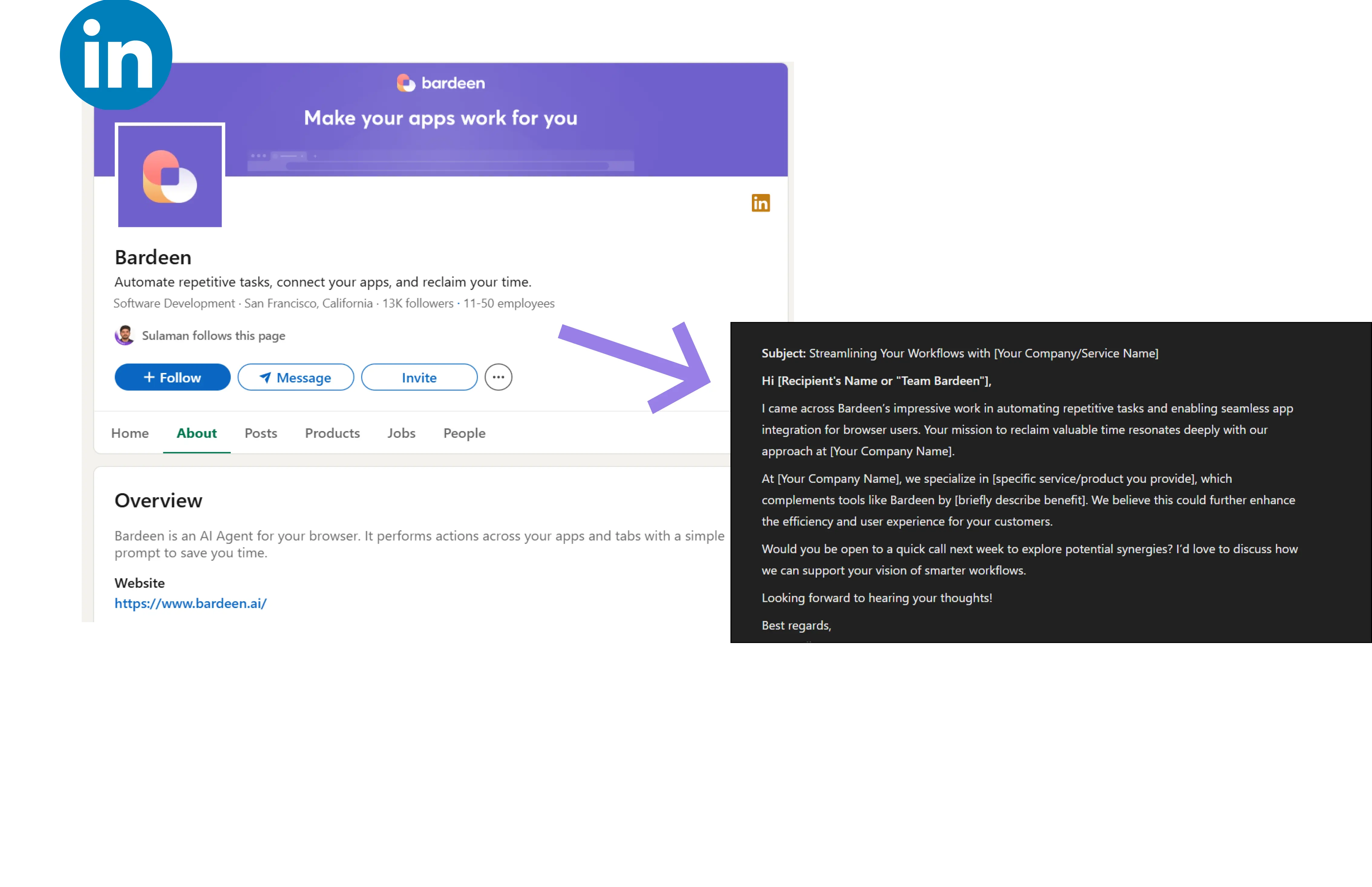
How does this playbook work?
Crafting personalized sales emails is time-consuming. This playbook generates a tailored outreach email from a LinkedIn profile, pulling in enriched data about the person and their company, and saves it as a Gmail draft.




How does this playbook work?
Sales outreach is time-consuming. This playbook pulls LinkedIn profile links from Airtable, enriches them with Apollo.io data, generates personalized emails, and updates Airtable – automating the process.

How does this playbook work?
Outdated CRM data leads to missed opportunities. This playbook pulls a HubSpot contact, enriches it with up-to-date data, and updates the contact's record with fresh information automatically.
Maintaining a consistent brand voice and messaging across the sales funnel is crucial for building trust and credibility with prospects. However, ensuring this consistency can be challenging, especially for large sales teams with multiple contributors.
AI-powered writing tools like Persado and Phrasee can help by analyzing a company's existing sales content to identify key brand voice elements and style guidelines. The tool can then provide real-time suggestions and feedback to ensure that all new content aligns with these standards, regardless of who is creating it. This helps maintain a cohesive brand experience throughout the buyer's journey, from initial outreach to closing the deal.
By automating time-consuming tasks like content creation and optimization, AI tools free up sales teams to focus on high-value activities like relationship building and strategic planning.
According to a study by Accenture, AI can boost business productivity by up to 40%. For sales teams, this could mean more time spent on personalized outreach, lead nurturing, and closing deals, rather than struggling with writer's block or agonizing over word choice. By leveraging AI to handle the heavy lifting of content creation, sales professionals can prioritize the human touch that is so critical to successful selling.
AI-optimized sales content empowers teams to craft compelling, personalized messaging at scale while maintaining a consistent brand voice. By saving time and focusing on high-value activities, sales professionals can build stronger relationships and ultimately close more deals.
Businesses need to adopt some form of AI if they want to keep up. But successfully integrating Artificial intelligence and sales is easier said than done. Almost 80% of AI deployments either get stuck in the pilot phase or are abandoned completely, as indicated by a recent Mckinsey survey.
It’s also interesting to note that the overwhelming majority (about 90%) of challenges are related to people and processes rather than technological shortcomings.
Let’s discuss how to get around some of these common barriers:
AI systems require high-quality, accurate, and clean data to function properly. In many sales teams, data is often siloed across different platforms (e.g., CRM, marketing automation, email systems), making it hard to integrate and analyze effectively.
Investing in data cleaning, standardization, and integration tools is crucial. Ensuring that your CRM and sales platforms are well-integrated with your AI tools can mitigate this challenge.
Sales teams may be resistant to adopting AI technologies, fearing that automation could replace their jobs or disrupt established workflows.
Clear communication about how AI will assist and enhance their work rather than replace them is essential. Training and demonstrations of AI tools’ benefits can help ease concerns and build trust.
Implementing AI requires a deep understanding of both the technology itself and the specific needs of the sales team. Companies may struggle to find the right talent or may not have the internal expertise to manage and optimize AI solutions.
Hiring AI specialists or working with experienced vendors can help. Many AI tools also offer training and support to guide sales teams in maximizing their potential.
The cost of AI tools, software, and required infrastructure can be high. Small and mid-sized companies may face budget constraints that make the initial investment difficult.
Many AI providers offer scalable solutions with different pricing tiers, so businesses can start small and expand as they see positive results. Additionally, focusing on ROI and long-term benefits can help justify the initial investment.
AI often requires access to large amounts of customer data, which can raise concerns around data privacy and regulatory compliance (e.g., GDPR).
Ensure that the AI tools you implement comply with relevant data protection regulations and use secure data-handling practices. Implement data governance and privacy protocols to protect customer information.
While AI can potentially optimize sales processes, overcoming these challenges requires a thoughtful approach. By addressing data quality, providing training, and aligning AI with business goals, businesses can maximize the value AI brings to sales.
Using AI for sales is crucial for staying competitive and maximizing revenue in 2025 and beyond. Let's recap the key strategies covered in this guide:
Don't get left behind in the AI sales revolution - master these strategies or risk losing deals to tech-savvy competitors!
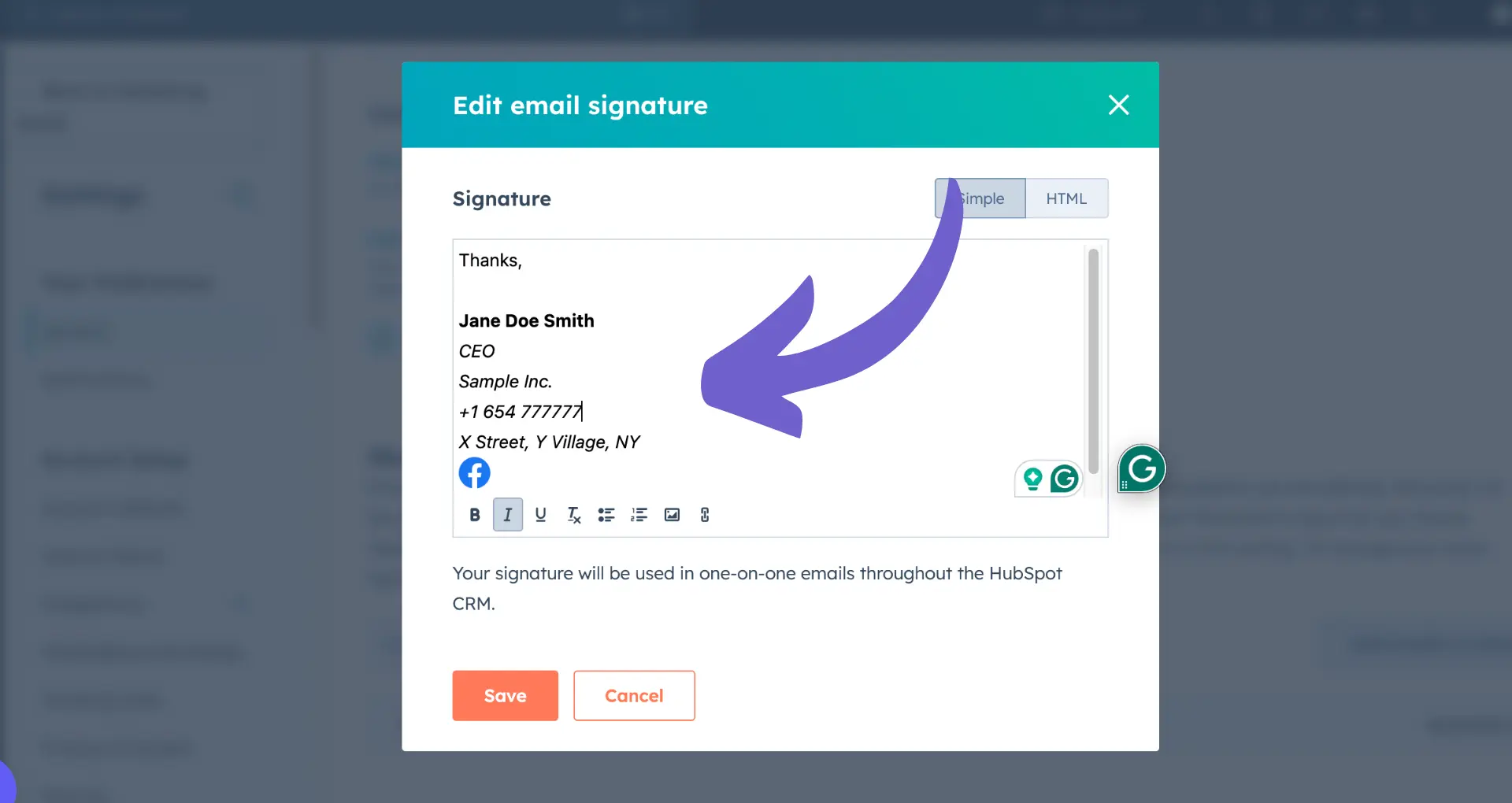
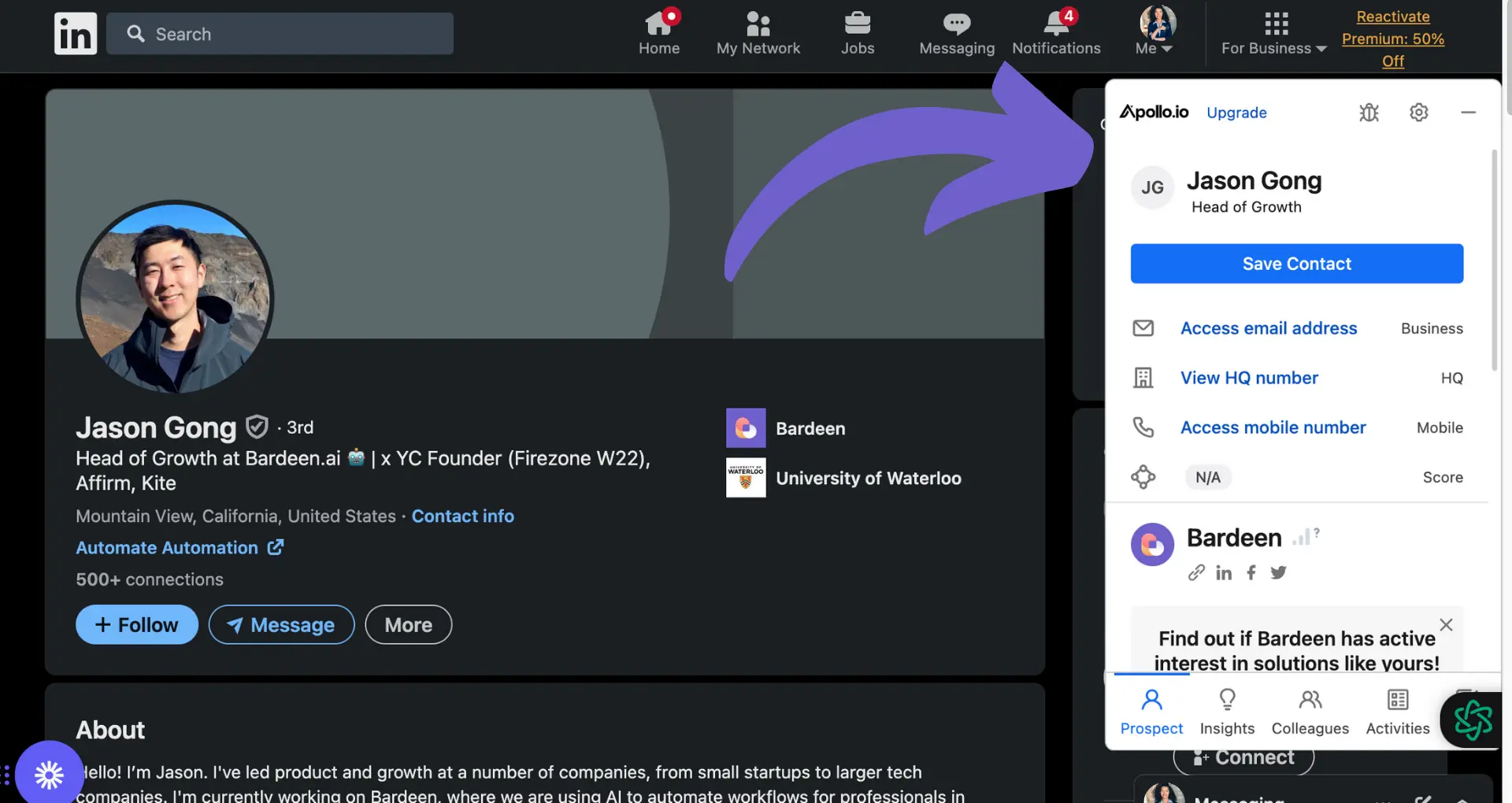








SOC 2 Type II, GDPR and CASA Tier 2 and 3 certified — so you can automate with confidence at any scale.
Bardeen is an automation and workflow platform designed to help GTM teams eliminate manual tasks and streamline processes. It connects and integrates with your favorite tools, enabling you to automate repetitive workflows, manage data across systems, and enhance collaboration.
Bardeen acts as a bridge to enhance and automate workflows. It can reduce your reliance on tools focused on data entry and CRM updating, lead generation and outreach, reporting and analytics, and communication and follow-ups.
Bardeen is ideal for GTM teams across various roles including Sales (SDRs, AEs), Customer Success (CSMs), Revenue Operations, Sales Engineering, and Sales Leadership.
Bardeen integrates broadly with CRMs, communication platforms, lead generation tools, project and task management tools, and customer success tools. These integrations connect workflows and ensure data flows smoothly across systems.
Bardeen supports a wide variety of use cases across different teams, such as:
Sales: Automating lead discovery, enrichment and outreach sequences. Tracking account activity and nurturing target accounts.
Customer Success: Preparing for customer meetings, analyzing engagement metrics, and managing renewals.
Revenue Operations: Monitoring lead status, ensuring data accuracy, and generating detailed activity summaries.
Sales Leadership: Creating competitive analysis reports, monitoring pipeline health, and generating daily/weekly team performance summaries.